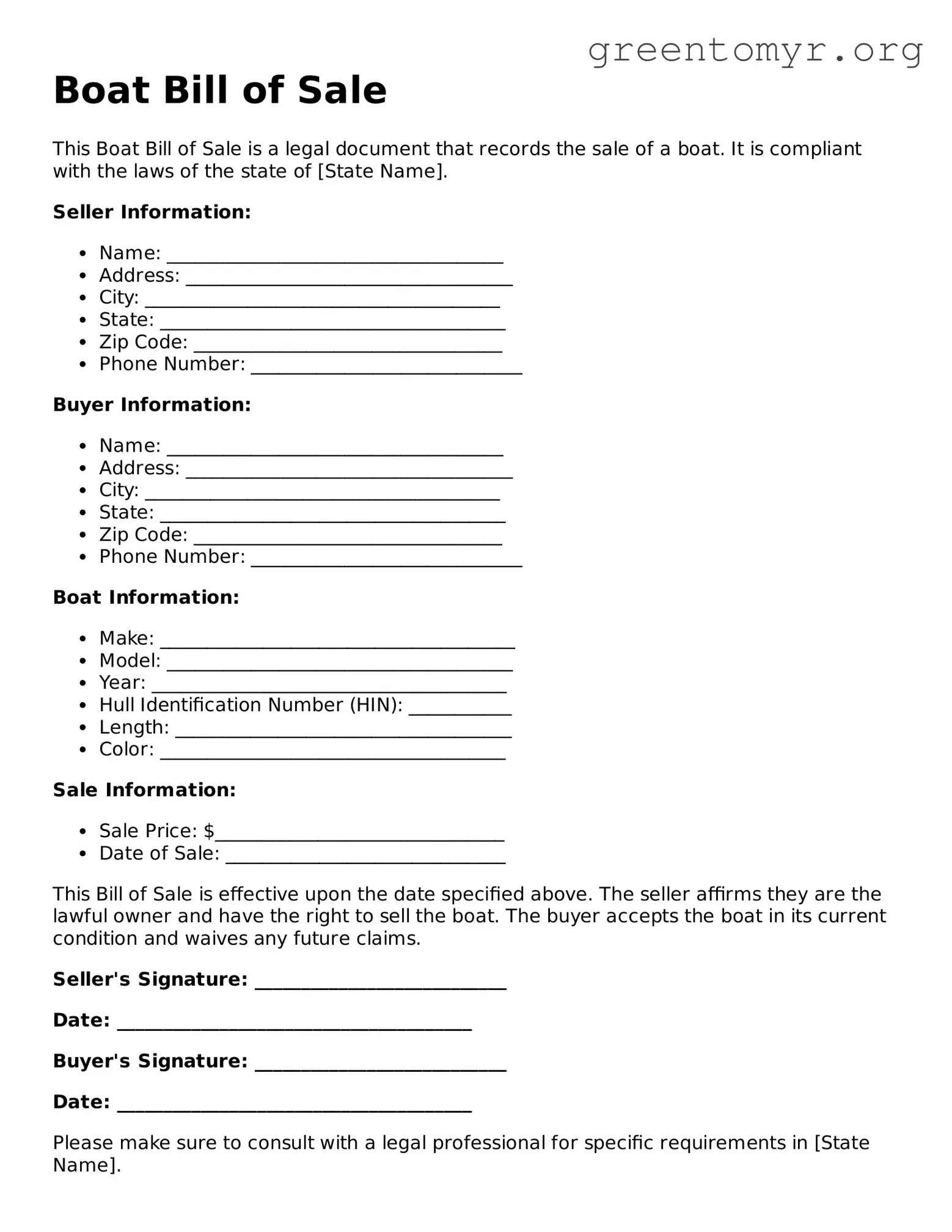Boat Bill of Sale
This Boat Bill of Sale is a legal document that records the sale of a boat. It is compliant with the laws of the state of [State Name].
Seller Information:
- Name: ____________________________________
- Address: ___________________________________
- City: ______________________________________
- State: _____________________________________
- Zip Code: _________________________________
- Phone Number: _____________________________
Buyer Information:
- Name: ____________________________________
- Address: ___________________________________
- City: ______________________________________
- State: _____________________________________
- Zip Code: _________________________________
- Phone Number: _____________________________
Boat Information:
- Make: ______________________________________
- Model: _____________________________________
- Year: ______________________________________
- Hull Identification Number (HIN): ___________
- Length: ____________________________________
- Color: _____________________________________
Sale Information:
- Sale Price: $_______________________________
- Date of Sale: ______________________________
This Bill of Sale is effective upon the date specified above. The seller affirms they are the lawful owner and have the right to sell the boat. The buyer accepts the boat in its current condition and waives any future claims.
Seller's Signature: ___________________________
Date: ______________________________________
Buyer's Signature: ___________________________
Date: ______________________________________
Please make sure to consult with a legal professional for specific requirements in [State Name].
